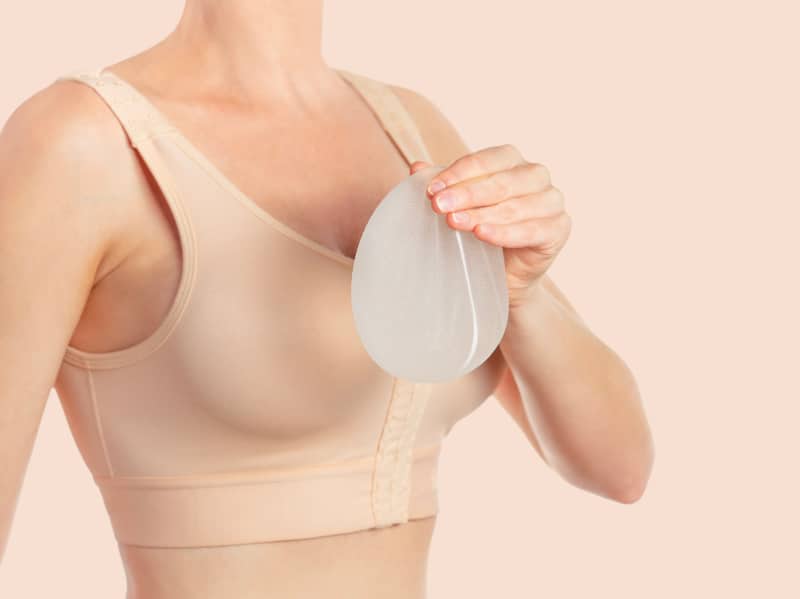More women are having plastic surgery than ever, with many choosing to have breast augmentation or a breast lift with their mommy makeover. You may have heard that women who have breast implants from these procedures need to consider more factors when they have a mammogram.
Below is more information about mammograms with breast implants so you can decide if breast augmentation is the right choice for you or whether you may need a breast implant explant Houston surgery.
Implants Can Affect Mammogram Imaging
One thing to remember is that different types of implants can interfere with the mammogram’s ability to image all breast tissue.
This means if you have a malignant or non-malignant breast tumor, the X-rays used in a mammogram will not show the breast tissue under the implant. So, part of the breast tissue will not be shown during the test.
Your board-certified plastic surgeon may put your breast implants in front of or behind the chest muscle. However, doing a mammogram of the breast with a breast implant in front of the chest muscle can be more difficult; the implant needs to be moved to provide the best view of all breast tissue and chest wall during the test.
Because of these complicating factors, your mammography professional must have experience working with breast implants in the breast tissue. So, talk to your doctor when you have a mammogram to ensure that you have a skilled technician to obtain the best possible imaging results.
Breast Cancer Risk Isn’t Higher With Implants
Despite what you may hear, the chances of breast cancer don’t increase if you have breast implants. This goes for both saline implants and silicone as well. The most significant predictors of getting breast cancer are age and family history. This is not to devalue the importance of breast cancer screening. Breast cancer screening is incredibly important both for women with breast implants and those without. Breast cancer screenings are a key to prevention and saving lives.
Also, clinical studies show that saline and silicone breast implants don’t cause breast cancer. However, the FDA has reported a small increased risk for anaplastic large cell lymphoma in women with a certain type of silicone implants. Whether you have silicone or saline implants, the increased risk is small, and your chances of getting any kind of cancer because you have implants are remote.
But you should remember that breast implants can interfere with mammogram imaging in some situations, so make sure that you are using a skilled professional for your mammogram. If a good image is difficult, your healthcare professional can recommend other imaging options to check for breast cancer.
Continue With Annual Mammograms After 40
Whether or not you have breast implants, doctors recommend having annual mammograms to check your breast tissue for health issues after age 40.
There have been some conflicting recommendations about when to have mammograms over the years, but age 40 is the current recommendation for those with and without breast implants.
However, experts say that you should have mammograms annually before 40 if you have a family history of breast cancer. People who have a family history have a higher risk for this cancer that rises as you age. This is an easy examination of the breast tissue for women with breast implants as well as those without. It is easy to have every year and can save lives.
Mammograms Don’t Damage Breast Implants
Some women are concerned that the compression during a mammogram will damage the implant. But doctors point out there are specific views during a mammogram where the tech can push the breast implant out of the way and then compress the breast to get the best picture.
If your implant doesn’t move enough to do a proper mammogram image, you may need an MRI or ultrasound to check for breast cancer.
3D Mammogram Is Best

Having more images for review is especially important for women with more dense breast tissue.
So, whether or not you have breast implants, a more robust form of breast imaging in a 3D mammogram is the best option. You may have heard from some sources that a 2D image is best for women with implants, but this isn’t true.
Don’t Avoid Mammograms Because You Have Implants
It’s important to have mammograms annually after age 40 to check for breast cancer, so don’t avoid the scans because you have implants.
As noted above, many skilled mammography technologists can scan your breasts effectively with a mammogram. If not, there are other imaging options available.
The chances of breast cancer rise with age, so always have your scans done according to your doctor’s recommendations.
When you call your doctor to have your mammogram, remember to say that you have implants so your healthcare professional can provide the care you need.
Questions and Answers
What are common problems that can occur with implants?
Breast augmentation continues to be a widely practiced and favored plastic surgery procedure in the United States, boasting a low risk of complications. The most frequently encountered issues include breast pain, alterations in nipple and breast sensation, formation of scar tissue, as well as rupture and deflation. That being said, a rupture is always possible. Detecting a breast implant rupture is straightforward during a physical examination, typically presenting as a deflated breast. The reduction in size becomes noticeable within a few days. Should the saline implant deflate shortly after insertion, it may indicate iatrogenic damage or an inadequately sealed valve.
Is a mammogram painful with implants?
Numerous individuals inquire about the potential pain associated with undergoing a mammogram when having breast implants. Throughout the procedure, the technologist will gently reposition your natural breast tissue, pushing the implant toward your chest wall. While this may result in slight discomfort, the majority of individuals commonly describe the pain as minimal.
What type of mammogram is best if you have implants?
In practice, 3D imagery provides significantly greater detail, proving particularly valuable, especially in the context of breast implants. This capability enables technologists to obtain precise, close-up images of the breast tissue. This is also why 3D mammography stands out as an excellent screening technique for individuals with dense breast tissue.
How much do implants cost?
The recent data from the American Society of Plastic Surgeons reveals that the average breast implant cost is $4,516. Note: Additional expenses such as anesthesia and operating room facilities are not included in this figure.
Request a Houston Breast Augmentation Consultation
Interested in breast augmentation in Houston? Please set up a consultation with Dr. Ashley Steinberg today. She’ll talk to you about the benefits and risks of the breast augmentation procedure to determine if you’re a good candidate.
References
Mammograms For Women With Breast Implants. (n.d.). Accessed at https://www.cancer.org/cancer/breast-cancer/screening-tests-and-early-detection/mammograms/mammograms-for-women-with-breast-implants.html.
6 Questions To Ask About Breast Implants and Mammograms. (n.d.). Accessed at https://rayusradiology.com/blog/6-questions-to-ask-about-breast-implants-and-mammograms/













